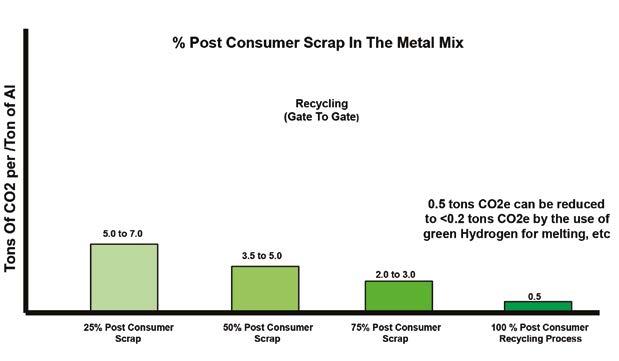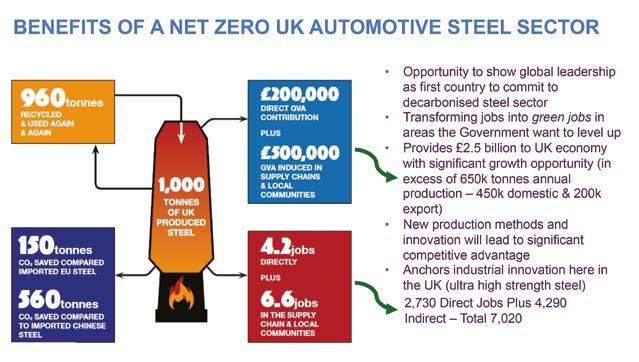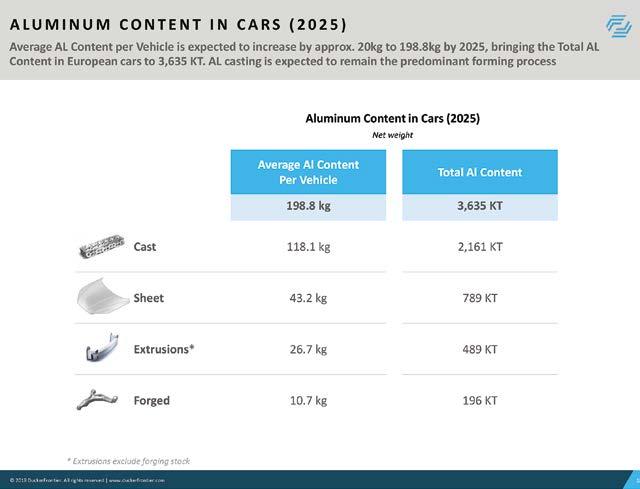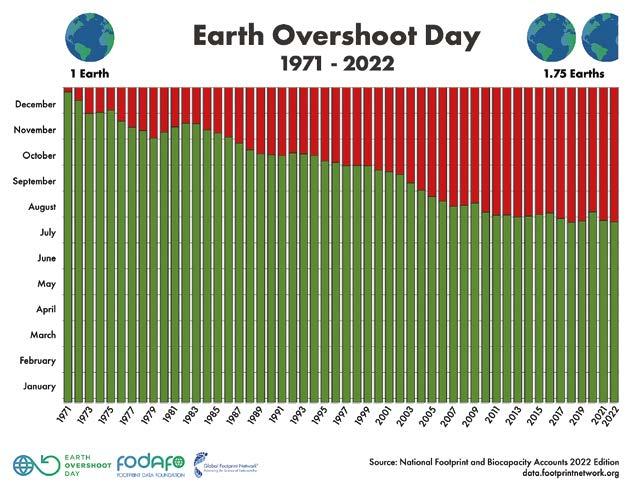
5 minute read
NET-ZERO AUTOMOTIVE SUPPLY CHAIN
By Dr Alan Banks, Ford Motor Company on behalf of UK Auto Council. E: abanks2@ford.com
Sourcing globally for the lowest landed cost has served us well for many years – it has lowered operating costs, enabled us to take advantage of low-cost country production that consumers have benefitted from since its inception. Supply chains in Eastern Europe and the Far East were able to be exploited for easy to ship, high labour content commodities to keep costs down for the collective good. We could argue that job losses in local economies that made way for globalisation have been the price we’ve paid but by and large, this was driven by consumer demand for less expensive goods. Consumer pressure generally wins against any argument to the contrary – and for many of these products, price sensitivity is high.
Recently however, global sourcing for the lowest cost has been called into question. Primarily driven by the sensitivity of the supply chain itself, recently highlighted by the global pandemic, issues with ocean freight, and the need to cut greenhouse gas emissions and CO2 in particular. The raw material markets have been particularly under scrutiny, as sourcing globally for the lowest cost typically means sourcing in less developed economies, who often use fossil fuels in their manufacture, and coupled with the distance of shipping, has led to higher embedded CO2 in raw material production, rather than driving GHG reduction. Consumers today are more environmentally conscious, demanding improvements, and in some instances, they are willing to pay more for greener goods.
Demand for recycled materials and sustainable products is only likely to increase going forward – regardless of legislation that is put in place. We could be in a position whereby public expectations out-perform legislation with the aim to reduce CO2. As OEM’s become more environmentally astute, the transition to lower embedded CO2 materials and products will become a requirement. It is unlikely that high-polluting (and low cost) countries today will be able to transition to zero-emission countries tomorrow, which will leave the supply chain vulnerable to unexpected and rapid legislation changes and potential shifts in consumer demand. In the auto industry this is likely to be very important as the push for zero-emission vehicles has a time limit. By 2035, all vehicles sold in the UK must be 100% zero-emission. But if the embedded carbon in the manufacture of these vehicles isn’t addressed – including how that vehicle is recycled at end of life – then it could be argued that the industry has only done half the job in reducing GHG.
Socio-political issues are also having a significant impact on the supply chain. The war in Ukraine has given the world shortages in ways nobody anticipated. The impacts of the Russian gas supply to Western Europe, to the grain supply from Ukraine itself, have all contributed to huge price rises across all markets. But before this, the global Covid Pandemic also caused supply issues – such that the global pricing was adversely affected. Similarly, demand for materials used for Battery Electric Vehicles (BEV’s) such as Cobalt, Nickel and Lithium have increased exponentially and were already on short supply prior to the war, and Russia has one of the world’s largest nickel mines is in Siberia. As this is now sanctioned, the situation will be exacerbated as demand for BEVs continues to grow. We must therefore look at better solutions to recycle and reuse these materials both to improve the CO2 footprint but also to secure supply.
The CO2 required to produce aluminium from recyclate is minimal compared to virgin. For instance, the CO2 output per tonne of material is approximately 20 tonnes for coal-based production. The European average is 6.7 tonnes of CO2 per tonne of aluminium. But this compares to less than 0.5 tonnes of CO2 to make aluminium from recyclate Figure 1. For the UK auto industry alone, this would equate to 8.25 million tons of CO2 reduction if the UK produced its own aluminium with 50% scrap (Figure 1). For reference, the UK scraps 100k tonnes of aluminium a year.
As the UK doesn’t have a remelt facility, the UK exports low value scrap low value scrap to be repurposed into high value (and high cost) material. This creates huge opportunities for industry that can make a business case for material on-shoring. The UK steel industry has a similar CO2 equation as the Aluminium industry and would also benefit (Figure 2).

The UK auto sector is healthy and is likely to grow as the demand for zero-emission vehicles intensifies. To protect UK supply chain, the raw material opportunities for manufacture within the UK can help by being resilient to outside influences and global insecurities.

As well as the CO2 reduction, the business case behind onshoring of raw material is compelling. To be self-sufficient for the UK auto industry for Aluminium, Steel, Carbon Fibre and Glass fibre would:-

• Reduce global CO2 by 137 tonnes of CO2 per tonne of material produced o Over 13 million tonnes annually

• Create over 13,500 jobs
• Generate over £5bn for the UK economy
The UK is already seen as an investible economy with at least 2 industry led propositions of automotive sheet and extrusion capability to more than cater for the sector. This will however leave a gap in the UK supply line for casting ingot which is as yet, unfilled. This means that there is an opportunity for in excess of 100,000 tonnes of aluminium ingot for casting purposes – and with electric motor casings a growing commodity, home produced material should be incentivised to fill this market, Figure 3.
Rural Affairs (DEFRA) wo would own the recycling strategy for materials. Encouragement to prevent off-shoring (and thus generating a huge amount of CO2 in the process) to recycle scrap material would set the agenda for materials to be made in the UK. DEFRA would need to work with the environmental lobby to demonstrate that although CO2 output from the UK will increase in the short term, the global reductions would be a compelling argument. UK CO2 output would be mitigated in the longer term by investment in green energy. Scotland, for instance, is already powered by 98% renewable energy and as the other UK countries decarbonise, so to will the CO2 output diminish. The Department of Business, Energy and Industrial Strategy (BEIS) could use on-shoring of recyclate to incentivise businesses to invest in UK materials using repurposed scrap as the base-line for a materials strategy. Incentives for business (not just direct funding) are the key for businesses to invest if they see long-term potential for their investment. Establishing security of the supply chain is a priority in the current and future markets. With uncertainty around long-term supply due to the war in Ukraine and the uncertainty around Taiwan, it is in the interests of the UK business sectors to understand and take advantage of any opportunities that exist. As the world evolves, so must the way we do business. In the post-Cold War era, the economics of local supply in a global market mitigated against the local economies. In the current market, especially with CO2 reduction as a requirement, the market opportunities may well be favourable for a re-think on the way we do business. Earth overshoot day (the day in which humanity has used up all of the biological resources that the planet can naturally regenerate) gets earlier every year, Figure 4. In 2022, that date was July 28th. In the UK alone, the date was May 19th. Whilst the issue ‘could’ be resolved by decarbonising high polluting material sources, this will not resolve the fragile supply chain and the UK will lose the job creation and wealth improvement opportunities that on-shoring would provide.
Whilst this potential should be industry led, the foundations of the opportunities could be underpinned by Government strategy starting with the Department of the Environment, Farming and









